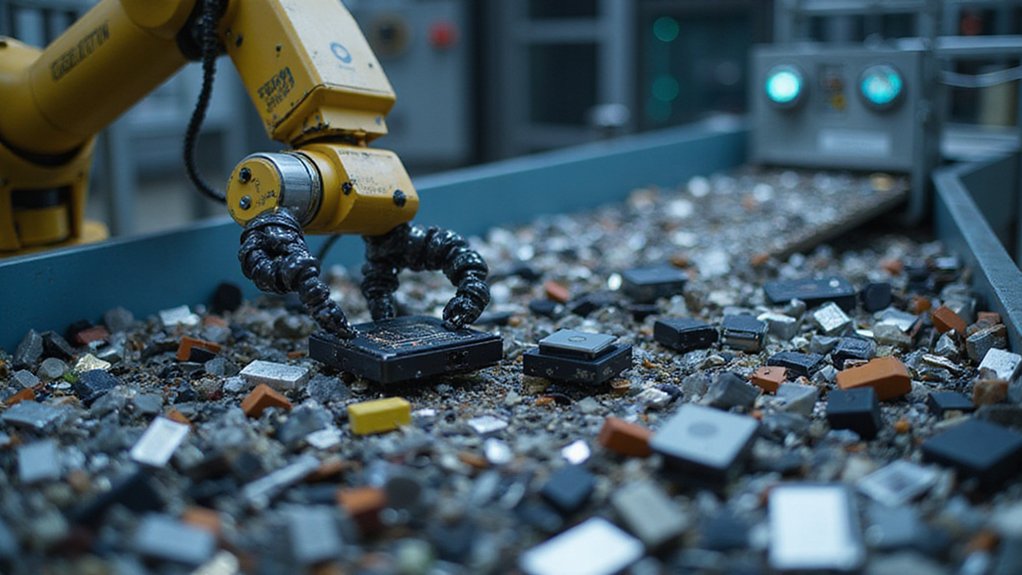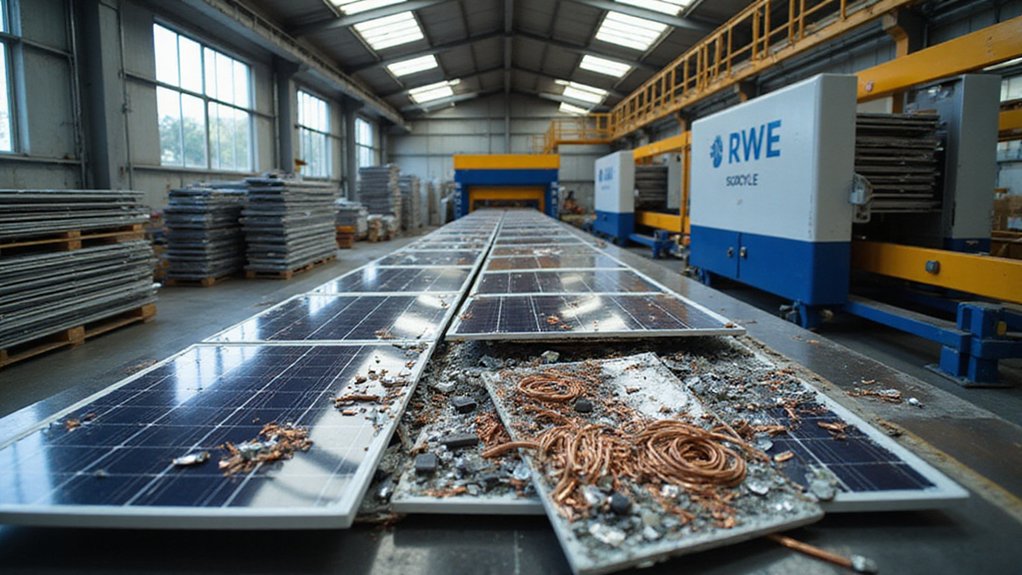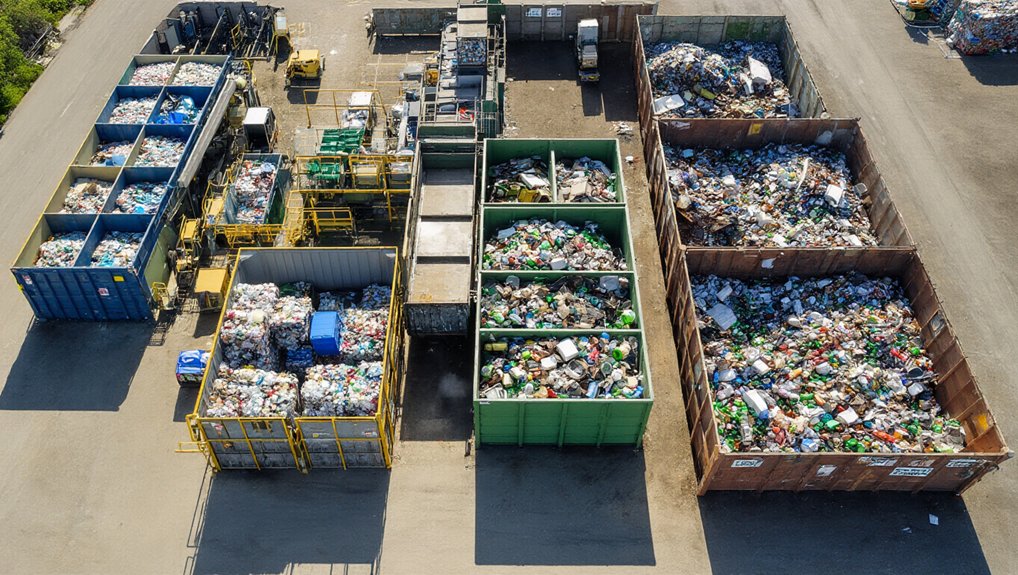Robots are ripping apart batteries while AI watches and learns. No human hands getting burned by toxic chemicals or lungs filling with dangerous fumes. Just cold, precise machine claws dismantling power cells with surgical accuracy.
Companies like Circu Li-Ion and Botree Recycling are turning science fiction into reality, with demonstrations showing robots taking apart batteries that once required hours of human labor. Pretty neat trick for an industry drowning in waste.
The real magic happens in the sorting. AI-enabled systems can now identify battery types using nothing more complicated than smartphone cameras. No barcodes needed. These systems achieve 85-90% accuracy, distinguishing between chemistries that look identical to human eyes. The machines are literally seeing what we can’t.
Behind the scenes, artificial intelligence is crunching numbers to extract more lithium, cobalt, and other precious materials from each battery corpse. Much like geothermal systems with their high efficiency rates, these AI recycling technologies maximize resource recovery while minimizing waste. Think about it—digital twins and process simulations creating near-zero waste workflows. This efficient recycling significantly contributes to a circular economy by reintegrating valuable components back into production. That’s serious money being rescued from landfills. The old way was basically burning dollar bills while poisoning groundwater.
China’s already dominating this space, but Western players like Redwood Materials aren’t exactly standing still. Advanced AI systems can now optimize hydrometallurgical processes to achieve higher recovery rates of valuable metals. The race is on, and nobody wants to be left holding worthless toxic waste when there’s profit to be extracted.
For regular folks, smartphone apps now guide proper disposal and even offer rewards. Money for your trash! Digital platforms dish out coupons and cash for people who bother to sort their batteries correctly. The system tracks everything from collection to recycling, keeping regulators happy and processes optimized.
This isn’t just about money, though it’s definitely about money. The environmental upside is massive—180,000 tons of battery waste in the US alone could become resources instead of poison. Less mining, lower carbon emissions, and fewer toxic chemicals leaching into groundwater.
AI isn’t just making battery recycling possible; it’s making it inevitable.
References
- https://artificialintelligencemadesimple.substack.com/p/how-ai-is-remaking-lithium-ion-battery
- https://www.cyient.com/blog/ai-in-battery-recyclingstrides-in-sustainability
- https://www.recyclingtoday.com/news/bower-varta-join-forces-on-ai-powered-battery-scanning-for-consumer-batteries/
- https://www.batterytechonline.com/battery-recycling/ai-battery-recycling-innovation-no-barcode-needed
- https://www.oscorpenergy.com.au/post/how-ai-is-revolutionizing-lithium-ion-battery-recycling-at-oscorp-energy









